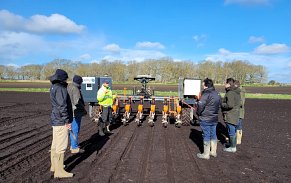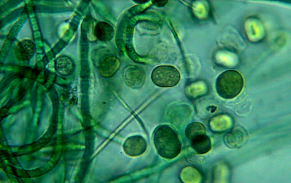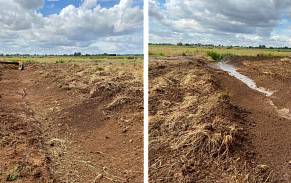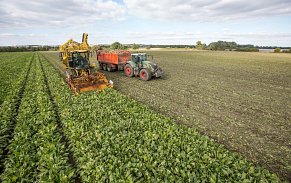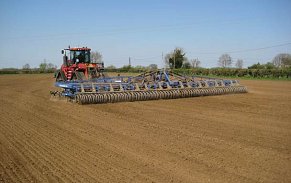Sustainable agriculture
We are the sole processor of the British sugar beet crop and our industry has long embraced the latest technology and innovations to improve processes, drive yield growth and productivity. We recognise the role we play in improving agricultural practices in the UK.
We work closely with our growers and the British Beet Research Organisation (BBRO) to ensure that we’re utilising the latest tools, techniques and research available to us.
Working with partners...
British Sugar works with the National Farmers’ Union (NFU) and directly with over 2,300 growers to support continuous improvement in the British sugar beet industry.
Together with NFU Sugar, we jointly fund the British Beet Research Organisation (BBRO), a non-profit company, which commissions and communicates research to increase the competitiveness and profitability of the British sugar beet industry in a sustainable and environmentally acceptable manner.
Investing in the BBRO and growers enables us to understand the impacts of changing practice through ongoing trials and research projects.
We are also working in collaboration with agricultural biotechnology company Tropic and the world-leading plant science institute the John Innes Centre (JIC) to further research into how gene editing can be used to benefit the British sugar beet crop.
Grower standards...
We are fully assured by the world-leading food chain assurance scheme Red Tractor and are audited yearly on this. All our growers must ensure that their sugar beet crop is covered under the Red Tractor Farm Assurance (Combinable Crops and Sugar Beet Standard) Scheme at all times. This assurance achieves Sustainable Agriculture Initiative (SAI) Platform Farm Sustainability Assessment (FSA) 3.0 Silver Level Equivalence.
We are also proud to be founding members of SAI Platform’s Regenerative Agriculture Programme – a collaborative and farmer-centred initiative that aims to address the urgent need for an aligned industry recognised, trusted and cost-effective way to assess, measure and report regenerative agriculture outcomes.
Our progress to date...
We aim to support our growers in embracing more regenerative practices on farm, which will deliver several positive outcomes for the British sugar industry and growers alike. From reducing GHG emissions to improving soil health and resilience, to increasing biodiversity. We want to work together.
increase
in sugar yields over
the last 20 years
Working with
growers
Jointly investing
annually in the BBRO
with our growers



